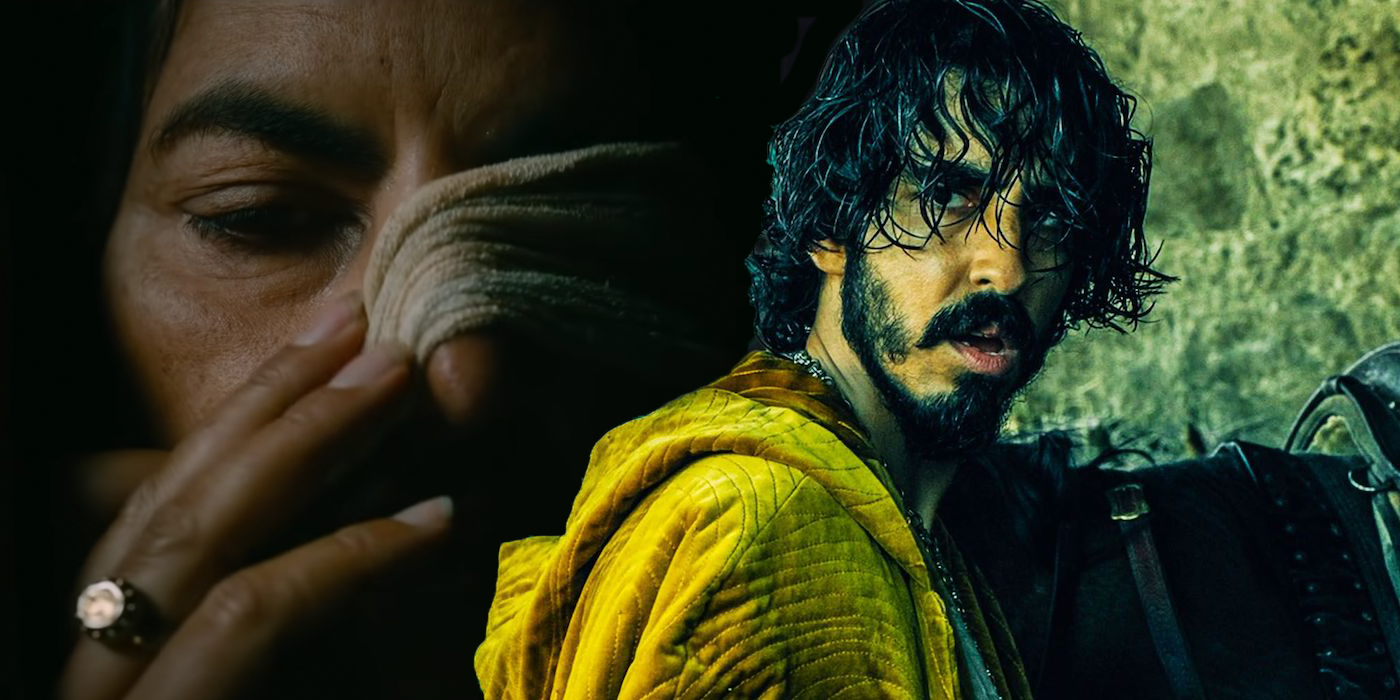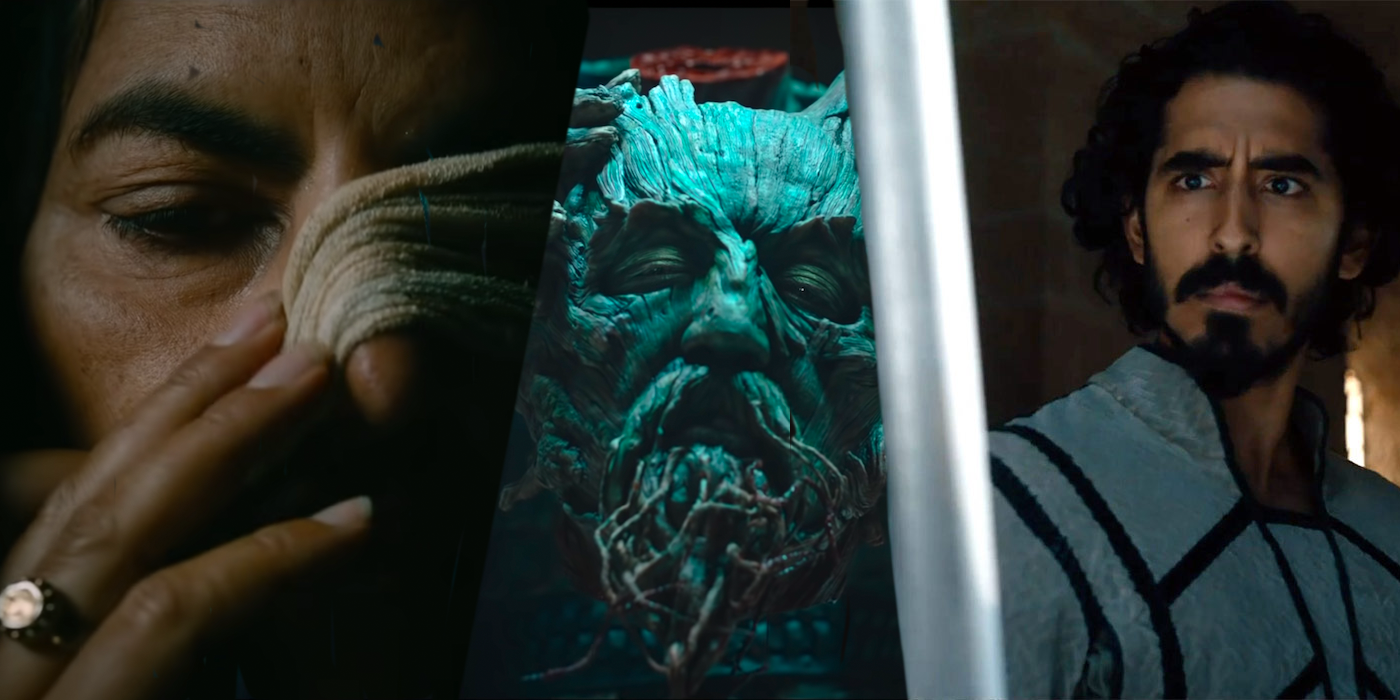WARNING: Spoilers for The Green Knight below.
The exact identity of Gawain's mother in The Green Knight is kept purposely vague, but here's who she is in Arthurian legend and her history explained. Scripted and directed by David Lowery, the film is an adaptation of the late 14th-century poem "Sir Gawain and the Green Knight." It tells the tale of Arthur's nephew, Gawain, a young man who is not yet a full-fledged Knight of the Round Table and his quest to seek out the Green Knight and survive a blow from the knight's ax.
The challenge the Green Knight presents, and even his existence, indicates something supernatural is behind it all. It's clear that there is some tie between Gawain's mother and the Green Knight, as she either summons or sends for him, and the film strongly implies that the following events are also controlled by her, as well. From the beginning, she's a mysterious figure, one who clearly dabbles in magic and hints that she feels unwelcome in Arthur's Christian court. At various points in the film, Gawain's mother lurks in the shadows and listens, takes another guise, or manipulates the events from behind the scenes.
All of that indicates she's a character with great power and influence, and that is indeed true. In the traditional mythology, Gawain's mother is Morgause, sister of Morgan le Fay. In The Green Knight movie adaptation, however, Gawain's mother is Morgan le Fay herself, the legendary sorceress and half-sister to King Arthur. She also orchestrated the events of "Sir Gawain and the Green Knight," though, in the poem, she did it merely to frighten Guinevere and challenge Arthur's knights. Morgan le Fay holds far greater importance in Arthurian legend than merely playing games, however. While her characterization in the mythology significantly changed over the centuries, her feminine strength demonized as Christianity waxed and paganism waned, she was always one of the most prominent and powerful figures in Arthurian legend, an enchantress strong enough to rival Merlin's power.
In the earliest documented accounts of Morgan le Fay from the early 1100s, she was depicted as a skilled healer and benevolent figure. Many historians believe Morgan le Fay likely stemmed from ancient Welsh and Irish mythology, particularly the Welsh goddess Modron or the triple-faced Irish goddess The Morrigan. The earliest depictions of Morgan le Fay support this, describing her as a goddess and one of the fae folk, well-versed in the arts of healing and magic. In fact, her last name, "le Fay," invented in the 15th century by Thomas Malory, translates to "the fairy" from the earlier French "la fée" in a nod to her fae roots. In those early stories, Morgan often played the role of Arthur's magical savior and a protective figure, and their relationship was generally peaceful.
By the Middle Ages, however, Christian morality started to influence Arthurian legend, and Morgan le Fay's paganism and feminine power came to be framed as qualities to be feared rather than admired, a common practice that befell a number of mythical female figures through the Middle Ages (and sadly still persists to this day). Though Morgan le Fay had taken a more prominent role in Arthurian legend, her characterization had changed to make her far more morally ambiguous as an antiheroine figure. By the Post-Vulgate Cycle of the early 1200s, she was an outright villain, cruel and malicious, using her powers to seduce and manipulate innocent men and scheming to take Arthur's throne. No real explanation is given, but Morgan le Fay representing evil is clearly meant to stand in contrast to her half-brother, Arthur, symbolizing all that is good.
Curiously, despite the hit job done to Morgan le Fay in later centuries, a number of texts depict her as being the singular most important figure at the end of King Arthur's life. When Arthur is mortally wounded by his nephew, Mordred, it is Morgan le Fay who takes the dying Arthur to the Isle of Avalon, which she rules, to heal him or bury him if she can not. Regardless of the era, whether in mythology or adaptations like The Green Knight, Morgan le Fay is the ultimate symbol of female power and autonomy.


